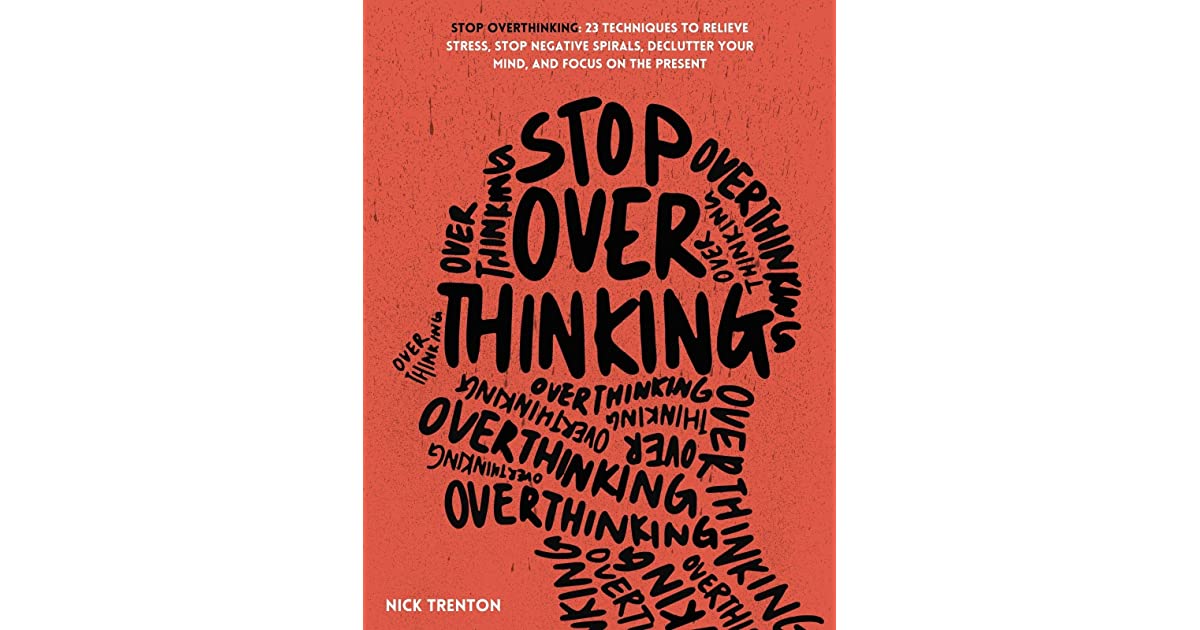“Stop Overthinking: 23 Techniques to Relieve Stress, Stop Negative Spirals, Declutter Your Mind, and Focus on the Present“, written by Nick Trenton, is a highly acclaimed guide for anyone seeking to overcome the negative effects of excessive worrying and negative thoughts. The book provides a range of techniques and strategies that help readers understand and manage their thoughts and emotions. Ultimately, leading to a calmer and more fulfilling life.
The New York Times praised the book. It stated it’s “a practical and well-researched guide for anyone looking to overcome the debilitating effects of excessive worrying and negative thoughts.” Publisher’s Weekly also gave it high marks, saying “The author employs a clear and accessible writing style that makes it easy for readers to understand the concepts and strategies discussed.”
One of the strengths of this book “Stop Overthinking”, according to The New York Times, is its use of real-life examples and case studies to illustrate the various techniques and strategies. This makes the content relatable and helps readers to see the practical applications of the concepts discussed. The book is divided into short, manageable chapters. This makes it easy to read in short bursts or in one sitting, according to Publisher’s Weekly.
One of the key themes of the book, according to The New York Times, is the importance of mindfulness and being present in the moment. The author explains how overthinking often results from a tendency to dwell on the past or worry about the future, and how this can lead to a sense of dissatisfaction and unhappiness. He then provides a range of techniques and exercises to help readers focus on the present moment, including mindfulness meditation, deep breathing, and visualization.
Another key theme of the book, according to Publisher’s Weekly, is the importance of cognitive reframing and changing negative thought patterns. The author explains how our thoughts and beliefs have a direct impact on our emotions and behavior, and how overthinking often results from a cycle of negative thoughts and beliefs. He then provides practical strategies for changing these thought patterns and replacing them with more positive and productive ones.
The author also covers the importance of physical activity and exercise in managing overthinking and reducing stress. According to The New York Times, he explains how physical activity can help to reduce stress and anxiety, and also improve our overall mental and physical health. In addition, he provides tips for incorporating physical activity into our daily routine, including advice on how to make it a regular habit.
Another important aspect of the book, according to Publisher’s Weekly, is its focus on self-care and stress management. The author stresses the importance of taking care of our physical and emotional well-being, and provides tips and strategies for managing stress, such as developing a healthy sleep routine, eating a balanced diet, and finding healthy coping mechanisms.
In conclusion, “Stop Overthinking” is a highly acclaimed guide for anyone. It provides a range of practical ways to help readers understand and manage their thoughts and emotions. The New York Times and Publisher’s Weekly both highly recommend this book as an excellent resource for anyone looking to develop new coping skills and achieve a more fulfilling life.
Have you read this other recommendation? Read This: The Power of Now

